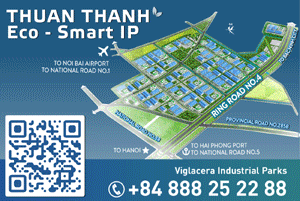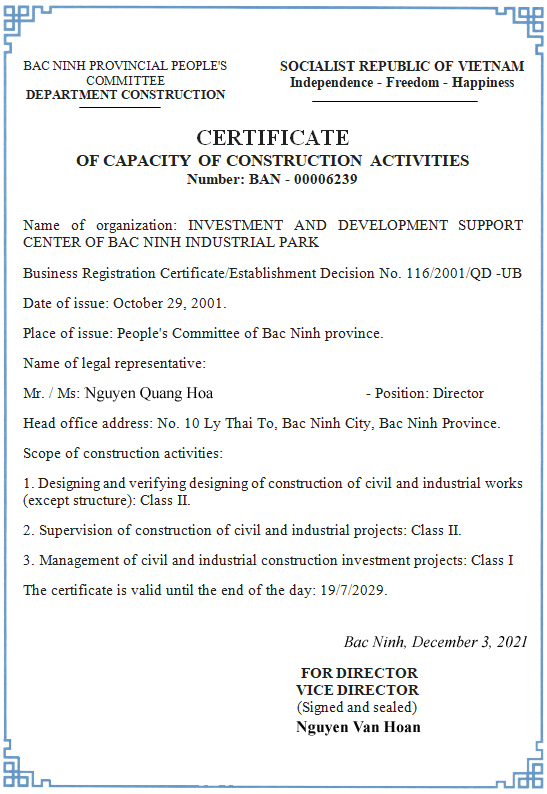The
circular economy has many definitions, but it is basically a model that
enhances the ability to reuse, recycle and recover materials in the production,
distribution and consumption of products. It differs from traditional economics
in its linear form, where products are produced and discarded after consumption.
In
Vietnam, this trend used to be unfamiliar to most businesses. It is mainly
deployed by large enterprises, mostly multinational corporations, thanks to its
financial and technological potential. However, there have been some signs of
prospects in small and medium-sized companies, the possibility of economic
efficiency.
Faslink,
a supplier of local fashion materials, started researching sustainable
materials 12 years ago. Six years ago, they set out a set of sustainability
criteria for the company. And not long before the epidemic, they delved into
the circular economy.
The
company currently has a collection of fabrics made from coffee grounds, lotus
fibers, mint fibers, seashells...and is exploring the possibility of using
banana fibers. Director Tran Hoang Phu Xuan said that in the first year of its
launch, 3 million polo shirts and 200,000 shirts made of their coffee grounds
were sold.
Recently,
Coteccons started using a new batch of uniforms with sustainable fabrics
ordered by Fastlink. Ms. Xuan sees an opportunity in the business uniform
market, where more and more companies are looking to use sustainable fabrics.
Or as
in agriculture, Mr. Pham Minh Thien, CEO of Thanh Binh company is aiming for
the circulation, taking advantage of the straw to the husk. Straw is used to
grow mushrooms, as food for cows. Rice husk used to press export pellets;
Golden bran pressed for oil and residue as animal feed. Rice by-products
(broken rice) make flour.
According
to Mr. Thien's research, the nutritional value of rice flour is half of soybean
meal, but absorption is faster. So he promoted the use of rice flour to reduce
imported soybean meal. As a result, rice flour residue from 900 VND per kg is
now priced at 9,000 VND. The increased demand makes the rice flour industry in
Sa Dec (Dong Thap) develop.
Realizing
the prospects, Mr. Thien also invested in a land area in
Tan Hong (Dong Thap) specializing in growing IR50404 rice. "This variety
is short-growing, we grow it without using drugs to reduce farming costs and
clean the soil. This chain is not for eating rice but for exploiting rice
flour," he said.
Particularly
Pham Dinh Ngai, Sokfarm CEO has taken advantage of the coconut areas that have
reduced fruit yield due to salinization in Tra Vinh to exploit nectar and
deeply process it into products such as drinks or soy sauce. Revenue from these
coconut trees can increase 3-5 times before.
According
to Mr. Ngai, the circular economy is not far away because his
startup can live with it. "Three years in this direction, we are
interested in many partners and consumers, high spread and favorable sales.
more profitable, raising businesses,". Currently, his company provides
jobs for 70 farmers.
At
the mid-November seminar in Ho Chi Minh City, Assoc. Prof. Dr. Nguyen Hong Quan
assessed the regeneration value of the product is great but it is not easy to
do. However, now there are units that can and make more money, showing great
potential.
According
to Mr. Quan, the circular economy has both advantages and challenges. In terms
of advantages, the health factor is increasingly valued, in both producers and
consumers, creating opportunities for sustainable and recycled products.
However,
the challenge is how to access the favorable market at reasonable prices. Ms.
Phu Xuan confirmed that the speed of consumers' access to products from the
circular economy is faster than before, but the big obstacle is still the cost.
"The
problem is how to produce sustainably but at a reasonable cost. We are trying
to produce a product that is no more than 30% higher than the price of
conventional products. To reduce costs further, it is necessary to cooperate
with other companies. inside a circular economic ecosystem," said Ms.
Xuan.
Solving
this problem, a big global door is opening ahead. According to global
management consulting firm Accenture (Ireland), the transition process towards a circular economy is estimated to represent a
$4.5 trillion global growth opportunity by 2030.
Meanwhile,
about 90 billion tons of natural resources are extracted each year to support
the global economy. Based on current trends, that number is expected to more
than double by 2050. While, only 9% of resources are regenerated into new
products after first use, according to the United Nations Environment Program
Nations (UNEP).
Long-term
opportunities, the basic macro environment already exists, whether businesses
can successfully seize or not depend on their ability to find a product that
properly meets market needs. "Whether the product is welcome or not
depends on the demand. We have to find the right demand to supply it," Mr.
Thien shared his experience.
According
to Assoc. Prof. Dr. Nguyen Hong Quan, what businesses need to do is maintain
their normal economic activities and integrate more circular solutions in it.
To be effective, the integration must fully calculate the input and output
problems. Enterprises do not need to put too much emphasis on theory and rigid
models.
"Maybe
in the future, people will define a different form of circular economy. The
definition may not be so important, but the biggest goal is sustainable
development, a cleaner green earth, people living a happy life. happier,"
he said.
Source: https://vnexpress.net






